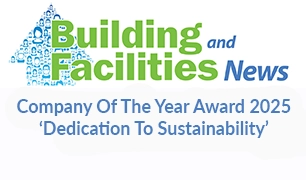Originally set to finish at the end of March 2021, and in response to delays caused to building projects by COVID-19, the Government’s non-domestic Renewable Heat Incentive (RHI) has received a 12-month extension. In response to concerns raised by stakeholders that a significant number of existing projects would fail to meet the scheme closure application deadline of 31st March 2021, affected projects are now able to submit an extension application.
Those existing projects unable to commission and accredit to the scheme before the previous deadline now can extend these processes until 31 March 2022.
With increasing pressure to decarbonise in line with the Government’s ambitious net zero targets, the preservation of reliable and continued funding for the commercial sector is critical if organisations are to be further encouraged in the adoption of future-proof sustainable developments. With no clear, immediate replacement for the RHI, concerns had been raised regarding the lack of incentivisation for the commercial sector, as new schemes focussed on domestic installations. Given around 40% of UK greenhouse gas emissions are accounted for by heating, cooling, ventilation, the provision of hot water and lighting the built environment, and some 17% is generated by commercial building stock, it is clear that more help is required to drive the uptake of renewables and more sustainable systems if the UK is to achieve climate-neutral buildings by 2050.
Designed to provide financial incentives to increase the uptake of renewable heat by businesses, the public sector and non-profit organisations, the non-domestic RHI is currently applicable to air source heat pumps, such as the Adveco FPi range and L70, and solar thermal for commercial uses including large and small businesses, plus schools and hospitals. Administrated by Ofgem on behalf of the Department of Energy and Climate Change (DECC), tier one of the RHI incentivises non-domestic energy producers for either the life of the installation or 20 years as a maximum. If conditions are met, with equipment, including a generation meter, being installed by a microgeneration certification scheme (MCS) accredited installer, eligible businesses in England, Scotland and Wales will now continue to be paid for installations completed and commissioned before 2022.
Once successfully accredited, systems will receive quarterly payments per kilowatt-hour (kWth) of energy use, however, if metered as a multiple system, which includes either ASHP or solar thermal and a gas boiler, then payment is made purely for the heat generated by the heat pump or solar thermal aspect of the application.
The current 2020/21 (non-domestic) tariff are:
- For new air source heat pumps – 2.79(p/kWh)*
- For new solar thermal collectors less than 200kWth in size (tier 1) – 10.98(p/kWh)*
For specifiers and developers installing renewable heating systems on commercial buildings or small-to-medium-scale district heating projects, the extension also provides crucial financial support ahead of the Green Heat Network Scheme (GHNS) coming into force in April 2022.
*For more information on non-domestic RHI and the full conditions of eligibility, refer to the energy regulator Ofgem.
















